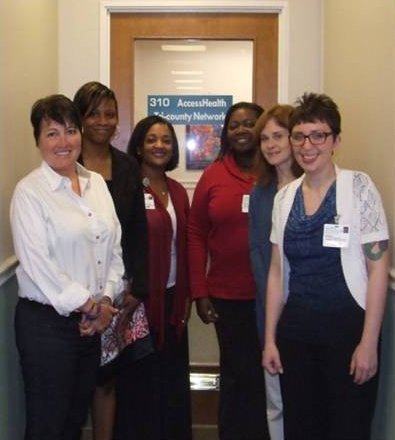In an area of the country known as the “stroke belt,” the “diabetes belt,” and the “obesity belt,” community partners from various sectors are coming together to improve the health of local citizens. Known as Healthy Tri-County, it’s a systems-change initiative that will take years of continuous effort, broad community support and many partners working in a highly-collaborative structure.
Sparked by Roper St. Francis Healthcare, Trident United Way and the MUSC Health, Healthy Tri-County had attracted 43 formal partners by April 15th and more than 500 individuals who had participated or planned to. Employing a “collective impact” model in which participants agree on an agenda and outcome measurements, and work collaboratively, Healthy Tri-County has completed a community health needs assessment and is now developing a community health improvement plan for the next seven years targeting an array of strategies to impact health in the Lowcountry.
“We have been missing a clear road map in this region,” said Kellye McKenzie, director of health for Trident United Way. “We’re working in a lot more unified fashion, minimizing duplication and aligning efforts.” That plan is expected to be complete in the Spring of 2018.
Once the planning is complete and initiative members begin implementing strategies, the need for individuals with advanced degrees in community health and the business side of health care is likely to increase. To meet that need, South Carolina State University offers an MBA program with a concentration in healthcare management at the Lowcountry Graduate Center (LGC) in North Charleston. This is in addition to an already successful master’s degree in social work at the LGC from the University of South Carolina.
Before it can address the community’s myriad interdependent health issues, Roper St. Francis, Trident United Way and MUSC Health undertook a community health needs assessment, a mix of data collection and surveying of nearly 1,500 people. Their report, issued at the end of last year, documents the prevalence of obesity (nearly one-third of adults), diabetes (one in every 10 adults) and lack of physical activity (80% of adults) in the three counties. It also revealed the top healthcare concerns of individuals surveyed, including access to health care, mental health services and maternal/child healthcare.

In the course of their assessment, the partners witnessed the powerful social determinants that affect health. Education, poverty, transportation and more impact people’s ability to live a healthy lifestyle, access health services, and afford the care they need. Partners addressing those issues, and others, have been invited into the collaborative.
Healthy Tri-County is in the process of establishing its priorities, which will likely align with the top health issues identified in the needs assessment: (1) Access to health, (2) Mental health, (3) Clinical preventative services, (3) Obesity, nutrition, physical activity, (4) Maternal, infant, child health, and (5) Social determinants of health.
For some of the organizations involved, implementation of the plan will not drastically change the work they do, but it will require them to align their work to agreed-upon outcomes. “Access to care is the community’s number one health priority and the local AccessHealth network has been addressing the issue in the tri-county area since 2010,” said Renee Linyard, director of AccessHealth Tri-County Network and a core member of Health Tri-County (pictured). Working within Healthy Tri-County “we will enhance the work in the priority areas identified through strategic partnerships to ensure we’re addressing the issues collectively.”

Healthy Tri-County is a
multi-sector regional initiative to improve health outcomes in Berkeley, Charleston and Dorchester counties in South Carolina.
All Rights Reserved.